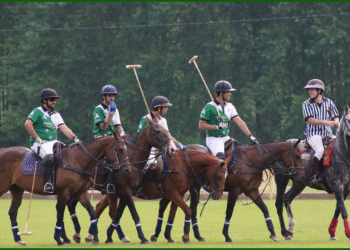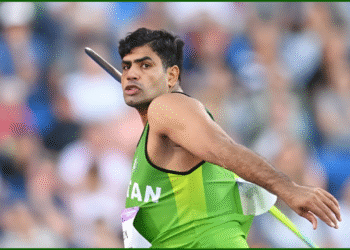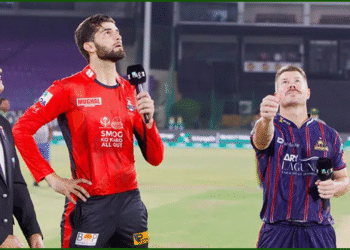LONDON — A member of the Belfast-based rap trio Kneecap faces terrorism-related charges after allegedly displaying a Hezbollah flag during a performance in London, authorities announced on Wednesday. The incident, which took place on November 21, 2024, has reignited debates about artistic expression and political boundaries in the UK.
The rapper, 27-year-old Liam O’Hanna, who performs under the stage name Mo Chara, is accused of violating the UK’s 2000 Terrorism Act. According to the Metropolitan Police, O’Hanna displayed the flag of Hezbollah—a Lebanese militant group classified as a proscribed terrorist organization in the UK—”in a manner likely to suggest support” for the group. The investigation began after a video from the concert surfaced online in April 2025, prompting scrutiny from the police’s Counter Terrorism Command.
O’Hanna is set to appear at Westminster Magistrates’ Court on June 18, 2025. The charges come amid heightened controversy surrounding Kneecap, known for their provocative lyrics and Irish nationalist themes. The group was scheduled to perform at a London festival on May 23, 2025, but recent events have led to cancellations of other shows in the UK and abroad.
Controversy and Context
Kneecap, celebrated for tracks like Out with the English and A Better Path, has long courted controversy with their outspoken political views. The band has faced accusations of endorsing banned groups after footage from performances showed members making inflammatory statements. In one widely circulated clip, a band member is heard shouting support for groups designated as terrorist organizations in the UK, though the band insists these remarks were misconstrued.
In response to the backlash, Kneecap issued a statement denying any endorsement of violence or proscribed organizations. “Our performances are about challenging systems and sparking discussion, not promoting extremism,” the group said in April 2025. They also extended apologies to the families of victims of political violence in the UK, including those affected by the murders of MPs David Amess and Jo Cox.
The case has drawn sharp criticism from prominent figures. The family of David Amess, killed in 2021 by a supporter of the Islamic State, demanded an apology, while Conservative Party leader Kemi Badenoch called for restrictions on the band’s performances. Meanwhile, Irish Taoiseach Micheal Martin urged Kneecap to clarify their stance on the matter.
Support and Censorship Debate
The incident has sparked a broader conversation about freedom of expression in the arts. Nearly 40 artists and bands, including notable UK acts, have rallied behind Kneecap, accusing authorities of stifling creative freedom. They argue that the band’s provocative style is a form of artistic protest rooted in Ireland’s complex political history.
“Kneecap’s music reflects the realities of their communities,” said a joint statement from the supporting artists. “Punishing them for their art risks setting a dangerous precedent for free speech.”
The charges against O’Hanna come at a time of heightened global tensions, particularly in light of the ongoing conflict in the Middle East. On October 7, 2023, an attack in Israel claimed over 1,200 lives, mostly civilians, according to official reports. The subsequent Israeli military operations in Gaza have resulted in significant loss of life, with Gaza’s health ministry reporting over 53,000 deaths as of May 2025.
Looking Ahead
As the legal proceedings approach, the case is likely to fuel further debate about the intersection of art, politics, and law. Kneecap’s supporters argue that the band’s work is a legitimate expression of cultural identity, while critics contend that their actions cross legal and ethical lines.
For now, O’Hanna and his bandmates remain defiant, vowing to continue their music despite the controversy. “We’re here to tell our story, and we won’t be silenced,” the band stated on social media.


















































